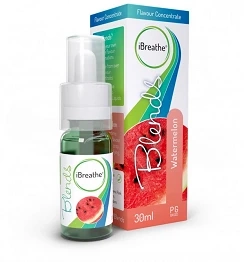Liquid concentrates play a crucial role in various industries, offering potent and versatile solutions for a wide range of applications. From enhancing the flavor of food and beverages to serving as active ingredients in pharmaceutical formulations, liquid concentrates provide a concentrated form of desired compounds. In this exploration, we delve into the world of liquid concentrates, tracing their journey from flavorful extracts to potent essences across different sectors.
Understanding Liquid Concentrates
Liquid concentrates are highly concentrated solutions derived from natural or synthetic sources. They are typically obtained through processes such as extraction, distillation, or synthesis, which concentrate the desired compounds while removing excess impurities. The resulting liquid concentrates contain a high level of active ingredients, making them valuable additives in various industries.
Applications in Food and Beverage
Liquid concentrates are widely used in the food and beverage industry to enhance flavors, aromas, and colors:
1. Flavors: Liquid flavor concentrates serve as the building blocks for creating a vast array of food and beverage products. Whether it's fruity extracts for beverages, savory essences for soups and sauces, or aromatic infusions for baked goods, liquid concentrates offer manufacturers precise control over flavor profiles and consistency.
2. Sweeteners: Liquid sweetener concentrates, such as high-fructose corn syrup and liquid glucose, are commonly used in the production of soft drinks, confectionery, and baked goods. Their high sweetness potency and liquid form make them easy to incorporate into recipes, providing sweetness while enhancing texture and mouthfeel.
3. Colors: Liquid color concentrates add vibrancy and visual appeal to food and beverage products. From natural extracts like beetroot and turmeric to synthetic food dyes, liquid color concentrates allow manufacturers to achieve the desired hue without compromising on product quality or stability.
Applications in Pharmaceuticals
Liquid concentrates also play a vital role in the pharmaceutical industry, serving as active ingredients in medications and healthcare products:
1. Herbal Extracts: Liquid herbal concentrates are derived from medicinal plants and herbs prized for their therapeutic properties. These concentrates contain concentrated levels of bioactive compounds, allowing for the formulation of herbal supplements, tinctures, and topical remedies with targeted health benefits.
2. Active Pharmaceuticals: Liquid concentrates serve as the basis for formulating active pharmaceutical ingredients (APIs) in liquid medications, suspensions, and injectables. Whether it's a potent analgesic, an antimicrobial agent, or a therapeutic enzyme, liquid concentrates provide the necessary dosage precision and bioavailability required for effective treatment.
3. Excipients and Solvents: Liquid concentrates also function as excipients and solvents in pharmaceutical formulations, aiding in drug dissolution, stability, and delivery. Common examples include propylene glycol, ethanol, and polyethylene glycol, which serve as carriers for active ingredients while ensuring uniform distribution and efficacy.
Innovations and Advancements
Advancements in technology and innovation continue to drive the development of liquid concentrates, unlocking new possibilities and applications:
1. Nanoencapsulation: Nanoencapsulation techniques enable the encapsulation of active ingredients within nanoscale carriers, enhancing their stability, solubility, and bioavailability. This technology is particularly promising in the pharmaceutical industry, where it allows for targeted drug delivery and controlled release systems.
2. Customization and Tailoring: Manufacturers are increasingly offering customized liquid concentrate solutions tailored to the specific needs and preferences of their customers. Whether it's creating bespoke flavor profiles for food and beverage products or formulating personalized medications for patients, customization offers unparalleled versatility and flexibility.
3. Sustainability and Green Chemistry: With growing emphasis on sustainability and environmental responsibility, there is a shift towards green chemistry approaches in the production of liquid concentrates. This includes utilizing renewable feedstocks, reducing waste and emissions, and implementing eco-friendly extraction and purification processes.
Conclusion
Liquid concentrate represent a cornerstone of modern industry, providing potent and versatile solutions for a myriad of applications. From enhancing the flavor and appearance of food and beverages to serving as active ingredients in pharmaceutical formulations, liquid concentrates play an indispensable role in shaping the products we consume and the medications we rely on. As technology advances and innovation continues to flourish, the potential for liquid concentrates to drive further advancements in diverse sectors remains boundless. With their ability to deliver concentrated potency and precise control, liquid concentrates will continue to be indispensable tools for manufacturers, formulators, and consumers alike in the years to come.


